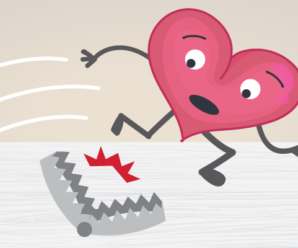Deer hunting gets the adrenaline pumping for many outdoors enthusiasts in Wisconsin and Michigan. While many memories are made in the woods, some remembrances involve heart attacks that put a hunter’s life at risk.
Why hunters are vulnerable

Hunting is widely popular in the Midwest. In 2023, the Wisconsin DNR sold more than 788,000 licenses for the deer season.
“Not everyone is active throughout the year and when hunting season comes around in the fall, it can put a lot of stress on the heart,” said Dr. Michael McGill, a cardiologist with Marshfield Clinic Health System.
That stress can come from a variety of sources.
- Colder temperatures – The heart works harder when the mercury drops because cold temperatures can increase heart rate and blood pressure.
- Wooded terrain – Many hunters trek for miles through the woods, which can be hilly, uneven and difficult to navigate.
- Dragging a harvested deer – This can be an incredibly laborious and long process that challenges even some of the most fit hunters.
- The simple excitement of deer hunting – Even seeing a deer run through the woods can get someone’s heart pumping faster.
“Some hunters have heart attacks when they are sitting in their stands because they are facing the exciting prospect of shooting a deer,” said Dr. McGill. “Physiologically, their bodies can release hormones that increase blood pressure and cause the heart rate to surge.”
Know the warning signs
Common heart attack symptoms include:
- Chest pain, that could also be a feeling of pressure, sometimes moving up to the neck, jaw, back or arms
- Shortness of breath or difficulty breathing
- Excessive sweating
- A feeling that something “just doesn’t feel right”
In men, most heart attacks involve discomfort in the center of the chest that lasts for more than a few minutes, or that goes away and comes back. The chest discomfort can feel like uncomfortable pressure, squeezing, fullness or pain.
“In women, heart attacks can present with atypical symptoms,” said Dr. McGill. “Women may have a sudden feeling of fatigue or shortness of breath with no feeling of chest pain.”
Time is always of the essence during a heart attack to ensure a hunter can receive potentially life-saving treatment. That can be problematic, along with calling 9-1-1, when you are in the woods. Dr. McGill recommends checking in advance where the closest hospital is to your hunting area and what other emergency services might be available if you need help.
For immediate care, visit Marshfield Clinic Health System.
Find an emergency department location






Leave a Reply